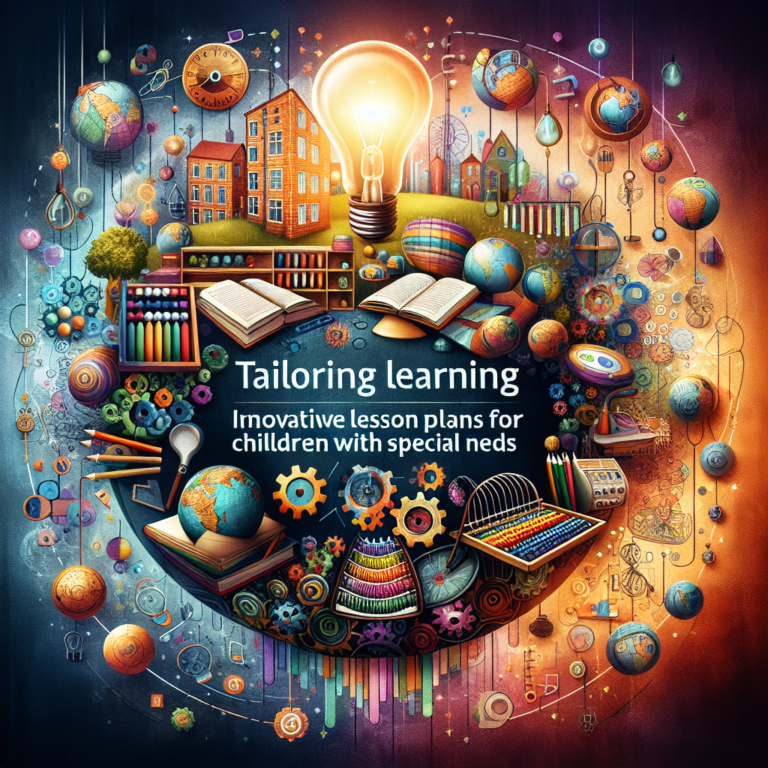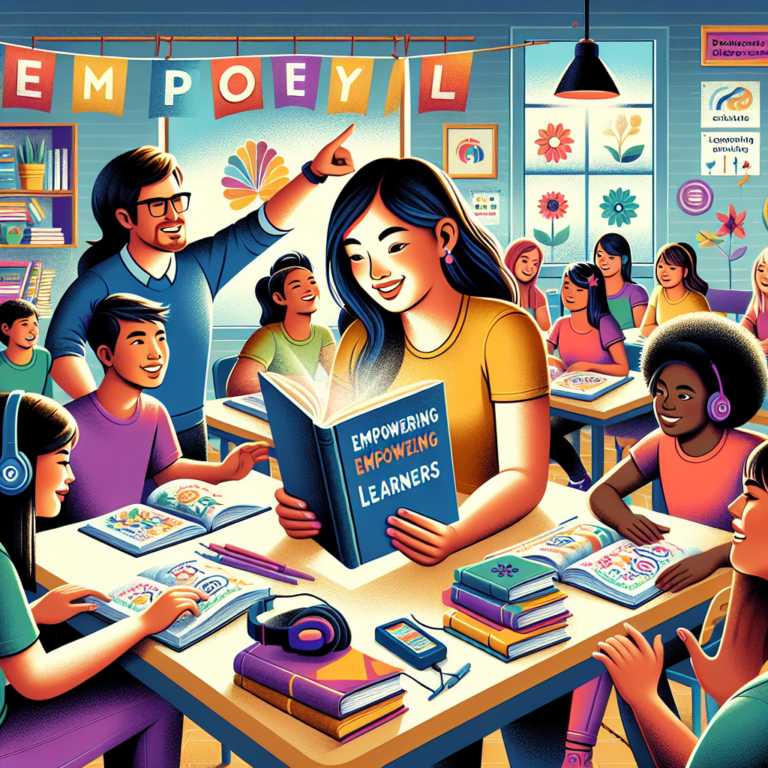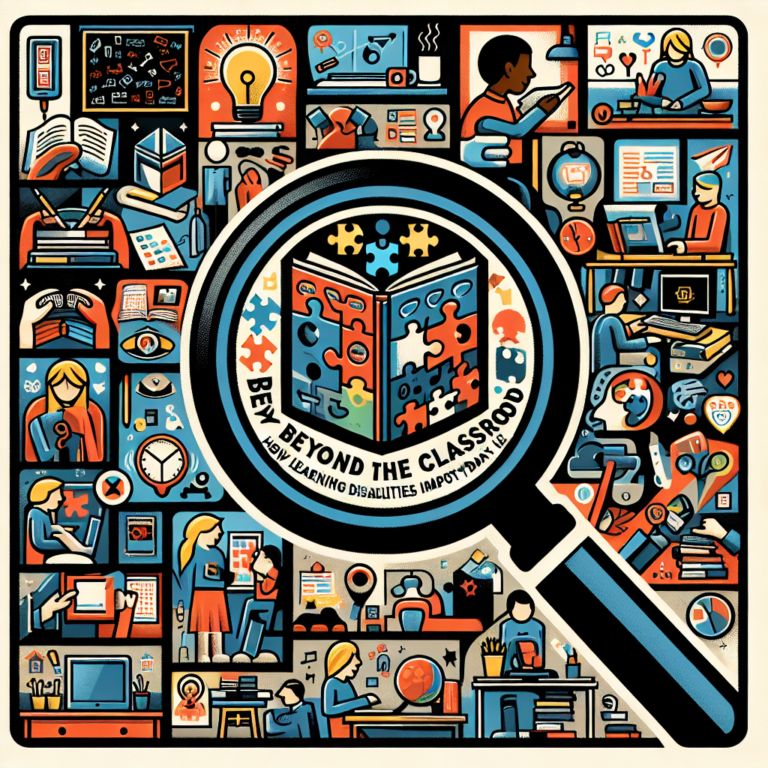
Empowering Adults with Learning Disabilities: Pathways to Success
Introduction
In a world that thrives on knowledge and adaptability, empowering adults with learning disabilities is not just a noble goal—it’s a necessity. As society evolves, so does the understanding of the unique challenges faced by adults with learning disabilities. With a staggering 15% of the global population experiencing some form of learning disability, the need for inclusive pathways to success has never been more critical. The ability to recognize and harness individual strengths can lead to outcomes that not only transform lives but also enrich communities.
In this article, we will explore diverse pathways to success for adults with learning disabilities, emphasizing practical approaches, strategies, and real-life success stories. From specialized education programs to supportive workplace environments, this guide provides a comprehensive look at how we can empower adults with learning disabilities to achieve their full potential.
Understanding Learning Disabilities
What Are Learning Disabilities?
Learning disabilities are neurological conditions that affect how individuals receive, process, and respond to information. These disabilities can span reading, writing, mathematics, and information processing, impacting educational as well as occupational performance. Contrary to common misconceptions, learning disabilities do not reflect a person’s intelligence; they simply exhibit a different way of learning.
Types of Learning Disabilities
- Dyslexia: Affects reading and language processing.
- Dysgraphia: Impacts writing coordination and motor skills.
- Dyscalculia: Affects mathematical capabilities and understanding.
By understanding these disabilities, we can move towards uniquely tailored strategies for empowerment.
Pathways to Success
Empowering adults with learning disabilities involves creating diverse, adaptable pathways tailored to their unique strengths and challenges. Here are several key avenues to consider:
Educational Programs
Case Study: Project SEARCH
Project SEARCH is a unique, work-based educational program that provides young adults with disabilities the opportunity to gain on-the-job training. The program combines classroom instruction with internships in businesses, allowing participants to acquire the skills and experience needed for competitive employment.
Analysis: Project SEARCH demonstrates that when education is aligned with practical work experience, participants gain confidence, skills, and ultimately, pathways to self-sufficiency.
Inclusive Work Environments
Creating inclusive workplaces is essential to empowering adults with learning disabilities. This means not just hiring practices that are fair and equitable but also workplace cultures that celebrate diversity.
Case Study: SAP’s Autism at Work Initiative
SAP implemented an initiative aimed at hiring individuals on the autism spectrum. The program embraces the strengths of neurodiverse individuals, fostering an inclusive culture that values different ways of thinking.
Analysis: This model highlights how adaptive hiring practices can lead to innovative solutions and higher employee satisfaction, proving that empowerment leads to mutual benefit.
Support Networks
Establishing robust support networks is critical for adults with learning disabilities. Whether through mentorship programs, peer support groups, or community organizations, social connections can provide the emotional resilience needed to navigate challenges.
Case Study: The Arc
The Arc is a nationwide community-based organization that supports individuals with intellectual and developmental disabilities. Their advocacy and support groups empower participants to make informed decisions about their lives and futures.
Analysis: The success of The Arc emphasizes the importance of community in fostering individual empowerment, underscoring how collaboration can lead to enhanced quality of life.
Technological Innovations
New technologies are breaking barriers for adults with learning disabilities, making learning and communication more accessible.
Tools Worth Mentioning:
- Text-to-Speech Software: Assists with reading comprehension.
- Speech Recognition Software: Eases writing difficulties.
- Learning Management Systems: Provide flexible, self-paced learning options.
Analysis: By harnessing technology, we can facilitate greater independence for adults with learning disabilities, paving the way for ongoing personal and professional growth.
The Role of Advocacy and Awareness
Advocacy plays a pivotal role in empowering adults with learning disabilities. As public awareness of these challenges grows, there is a greater push for inclusive policy-making that reflects the needs of all individuals.
Legislative Support
Policies like the Americans with Disabilities Act (ADA) ensure that individuals with disabilities have the legal right to access educational and workplace opportunities. Advocacy for such laws is crucial in building pathways to success.
Community Awareness Campaigns
Promoting awareness through community campaigns can destigmatize learning disabilities and foster a more inclusive environment.
Analysis: Greater awareness leads to advocacy, which is crucial for maintaining momentum toward systemic change.
Training and Skill Development
Skill development is key to empowerment. Initiatives that focus on vocational training and personal development can provide adults with learning disabilities better chances at successful careers.
Case Study: Goodwill Industries
Goodwill Industries offers a variety of programs focused on training adults with disabilities, enhancing their skills for the workplace. Their approach combines vocational training, job placement services, and ongoing support.
Analysis: Goodwill’s model illustrates that equipping individuals with the right skills can change the trajectory of their lives, fostering economic independence and self-esteem.
Lifelong Learning Opportunities
Learning shouldn’t stop at job acquisition; creating pathways for continuous education enriches lives and keeps individuals adaptive in the job market. Online courses, workshops, and training programs ensure that skills are relevant and up-to-date.
Tables: Key Statistics
| Indicator | Percentage |
|---|---|
| Adults with Learning Disabilities | 8-10% of the population |
| Unemployment Rate among Adults with Disabilities | 70% |
| Positive Employment Outcomes with Job Coaching | +50% |
Analysis: These statistics reveal just how vital it is to create efficient pathways for adults with learning disabilities. When structured properly, supportive initiatives can significantly uplift the workforce participation rate in this demographic.
Conclusion
Empowering adults with learning disabilities requires a collective effort to create tailored pathways to success. From educational programs and inclusive workplaces to advocacy and technological innovation, we have the power to foster environments where individuals can thrive.
If we can implement these strategies effectively and prioritize understanding and support, we can create a society where everyone, irrespective of their learning challenges, can achieve their dreams.
As we seek to empower adults with learning disabilities, let us remember that the aim is not just to improve lives but to celebrate diversity and harness the unique perspectives that each person offers. Every pathway to success is not just about reaching the destination, but also about discovering the strengths along the journey.
FAQs
What can I do to support an adult with a learning disability?
- You can provide emotional support, assist with finding resources, and advocate for their needs in educational or workplace settings.
Are there specific programs focusing on employment for adults with learning disabilities?
- Yes, programs like Project SEARCH and Goodwill Industries focus specifically on employment training and support for individuals with learning disabilities.
How can technology assist adults with learning disabilities?
- Technologies such as text-to-speech and speech recognition software are designed to help manage challenges associated with literacy and communication.
What role does advocacy play in empowering adults with learning disabilities?
- Advocacy helps to raise awareness, influence policy change, and ensure that individuals with disabilities have access to necessary resources and opportunities.
Can adults with learning disabilities achieve successful careers?
- Absolutely! With the right support, training, and adaptive environments, many adults with learning disabilities excel in their careers.
- What are some common misconceptions about learning disabilities?
- A prevalent misconception is that learning disabilities are linked to intelligence. In reality, individuals with learning disabilities can have significant strengths and skills, often excelling in areas outside traditional educational measures.
By employing these strategies and celebrating individual strengths, we can create a world where success is accessible to all, regardless of the challenges they may face. The effort to empower adults with learning disabilities is a step toward a more equitable and inclusive society. Together, let’s ensure that every individual can navigate their own unique pathway to success.















